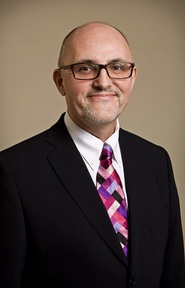NHS chief criticised for saying hospitals are 'very bad places' for the elderly
The president of the British Geriatrics Society has criticised David Nicholson, head of the NHS Commissioning Board, for saying hospitals are “very bad places” to care for the elderly.

Forty per cent of people in hospital have some form of dementia and Sir David wants to see alternatives to putting these “old, frail people” in hospital.
However Professor Paul Knight of the British Geriatrics Society said: “It is true that hospitals can be dangerous places but it is a myth that older people should not be in hospital.” He added: “There is a pervasive attitude that hospitals are the wrong place for older people.”
Professor Knight is concerned that Sir David’s comments could exacerbate the situation. He said: “This is worrying as Department of Health funded research has shown that care lacking dignity and skill was associated with hospital staff perceiving that older patients “should not be there”.
“We support all initiatives that enable treatment at the right time in the right place, including, where appropriate, management of some episodes of ill health without going into hospital.
“However, frail older people often have complex conditions with multiple co-existing illnesses which require all the skills of the multi-professional team. A well-resourced hospital environment is frequently the safest and most efficient way of ensuring that patients improve and can be maintained in their own home after discharge,” he said.
Professor Knight would like to see more investment in community services so people can manage their conditions better in the community and only go into hospital when this is appropriate.
But he added: “There is no doubt though that general hospitals should, and will, continue to play a major role in healthcare delivery for older people, particularly those with multiple morbidities, who will continue to need immediate access to acute and restorative hospital care.
“However, hospitals must be age attuned in terms of the physical environment and the skills and cultural attitudes of all staff working within them to ensure that hospital care is as effective as possible and that hospitals are good places for frail older people when they need them.”
Sir David told the Independent newspaper that he wants to see a fundamental change in the way Britain cares for the elderly.
Andrew Chidgey, director of external affairs for the Alzheimer’s Society backed Sir David’s comments and said: “The awful truth is that Sir David is right. People with dementia are going into hospital unnecessarily, staying too long and coming out worse. Supporting people with dementia in the community will prevent them reaching crisis point and needing costly hospital care. This is not only beneficial for the person but makes financial sense for an NHS stretched to breaking point.
“Reducing the time that people with dementia stay in hospital by just one week could save the NHS millions a year. Supporting the 800,000 people with dementia in the UK to live well in the community needs to be established as a top priority for the new NHS Commissioning Board.”
Latest News
 29-Jul-24
Dementia Bus gives carehome.co.uk staff insight into life with dementia
29-Jul-24
Dementia Bus gives carehome.co.uk staff insight into life with dementia
 01-Mar-24
Find out the top care homes in 2024
01-Mar-24
Find out the top care homes in 2024
 21-Mar-23
UK's top care homes in 2023 revealed
21-Mar-23
UK's top care homes in 2023 revealed
 03-Jan-23
carehome.co.uk launches free care helpline
03-Jan-23
carehome.co.uk launches free care helpline
 13-Dec-22
5 mins with Emily Whitehurst, chief operating officer for Constantia Healthcare
13-Dec-22
5 mins with Emily Whitehurst, chief operating officer for Constantia Healthcare